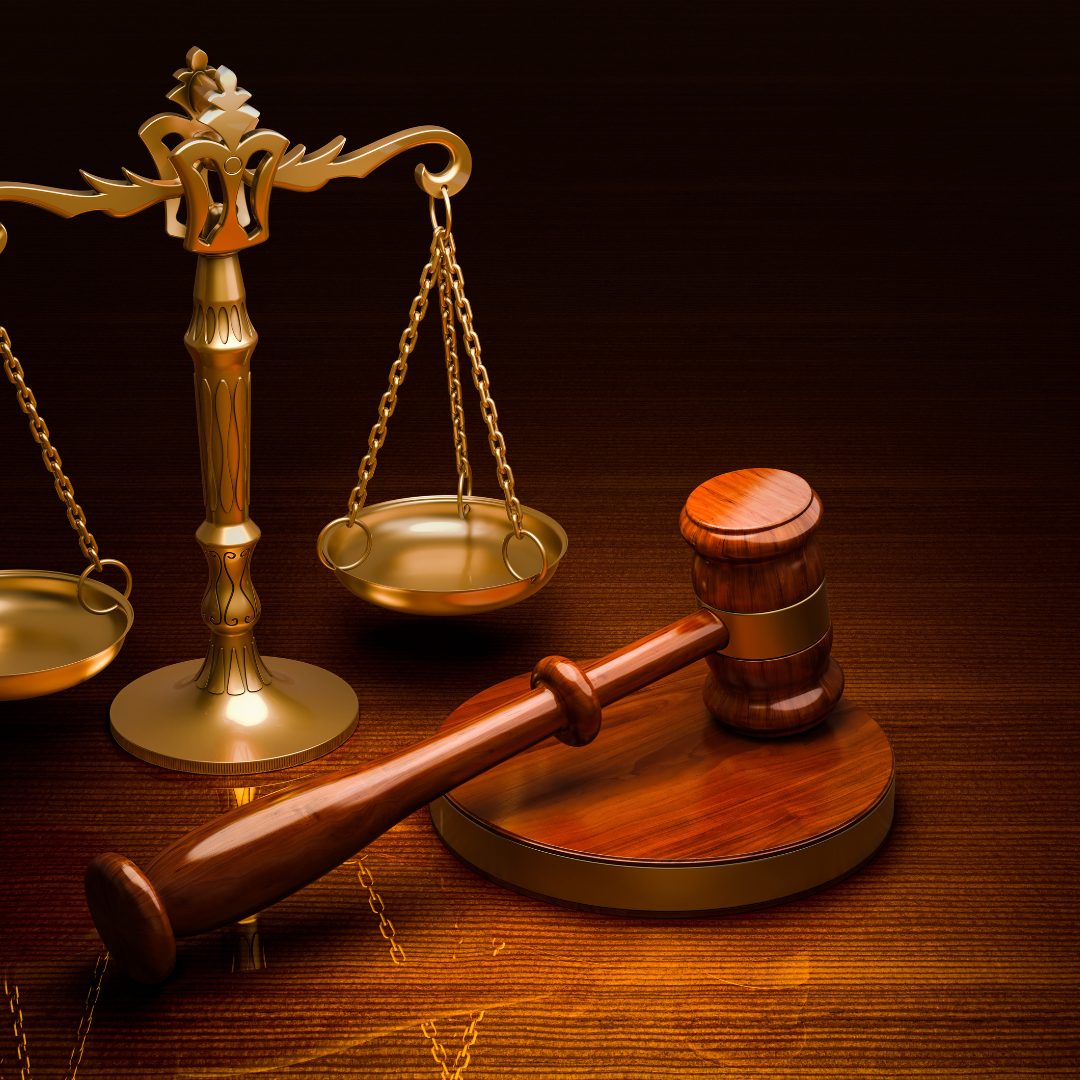
If you have suffered an injury due to someone else’s negligence, you have the right to seek compensation for your losses, and our North Carolina personal injury lawyer is here to help you. We know that the aftermath of an injury can be a difficult and confusing time. Our team will help guide you through the process of filing a claim as you pursue the justice and compensation that you deserve. We will thoroughly evaluate your case and assess your legal options.
Our personal injury lawyer will help you hold the at-fault party responsible for the losses and damages that you have suffered as a result of their negligent or malicious actions. By filing a claim with the responsible party’s insurance company, you can recover damages including lost income, medical costs, and emotional distress or pain and suffering. If the insurance company offers a low settlement or tries to deny the claim altogether, we will help you appeal the denial, negotiate a more fair payout, or file a lawsuit to pursue maximum compensation.
Chris Layton has been a North Carolina resident for over 20 years, and he has over a decade of legal experience. He became a lawyer because he wanted to help people who might otherwise be taken advantage of, and he is committed to helping you recover after a personal injury accident. To schedule a consultation with our team and discover how we can assist you, contact The Layton Law Firm today.
Personal Injury Cases We Assist With
How Our Personal Injury Lawyer Can Help You
Your personal injury claim is incredibly important to us. Our firm motto, Recover With Us, refers to our desire to fight for your financial recovery while you focus on recovering physically. You deserve to have your rights protected, and we are here to offer that protection.
Don’t let an injury severely disrupt your life. The more severe your injury, the more complicated your claim will likely be. If you were hurt in any type of accident, our North Carolina personal injury lawyer can help you seek financial relief. Even if you only suffered minor injuries, medical treatment can still be expensive. If someone else caused the accident that left you injured, you shouldn’t be responsible for any costs associated with your recovery. We will fight for your rights to receive fair compensation
As your personal injury lawyer, we will be sure to explain your rights and provide comprehensive legal advice, document your losses and calculate the total value of your claim, investigate your accident thoroughly to identify all liable parties and establish clear liability, handle all communications and negotiations with the insurance company to secure a fair settlement, and file a lawsuit and represent you in court if a fair settlement cannot be reached.
Worried about paying attorney fees? We work on contingency, meaning we don’t get paid until you do.
Case Highlight
A teenage client of ours was a passenger in a vehicle that was t-boned at an intersection. She suffered a broken leg and minor injuries to her back and shoulder. These injuries prevented her from participating in her senior year of high school track and field, as well as other significant events. We argued that these losses constituted special damages in her claim. Before filing a lawsuit, we were able to settle the case to her satisfaction.
Types Of Personal Injury Cases
Our North Carolina personal injury lawyer is committed to helping those harmed by the negligent, carelessness, or wrongful actions of others. We handle all types of personal injury litigation, including cases involving car accidents, motorcycle accidents, medical malpractice, slip and fall accidents, work-related injuries, nursing home abuse, and more. If you’ve been injured, we can review your case to decide how best to help you.
- Car accidents account for a substantial portion of personal injury cases, frequently involving significant injuries or even loss of life. Many of these cases result in permanent impairment, disfigurement, or long-term medical conditions that have a lasting impact on the injured person.
- Motorcycle accidents pose a much higher risk of catastrophic injuries or death for motorcyclists when they are struck by another vehicle. The long-term consequences are often severe, including impairments such as brain damage or spinal cord injuries.
- Medical malpractice occurs when healthcare providers fail to meet the accepted standard of care, resulting in patient harm. This negligence can happen in various medical settings and often leads to serious consequences for the affected patient. Healthcare providers may be held liable for their actions.
- Slip and fall accidents occur when property owners fail to maintain safe conditions, leading to injuries. These incidents can result in serious consequences such as broken bones, head injuries, and long-term disabilities. Property owners may be held liable for their negligence in ensuring a safe environment.
- Work-related injuries occur when employees are harmed while performing their job duties. These injuries can range from minor accidents to severe incidents resulting in long-term disabilities. Workers’ Compensation provides financial relief and medical benefits to injured employees, ensuring they receive necessary care and support during their recovery. Employers are required to maintain a safe working environment to prevent such injuries.
- Nursing home abuse occurs when caregivers in long-term care facilities fail to provide the expected standard of care, leading to harm or distress for residents. This abuse can take many forms, including physical, emotional, and neglect. The consequences can be severe, resulting in significant physical and psychological damage. Caregivers and institutions may be held liable for their negligent actions and failure to protect residents.
Frequently Asked Questions
When should I contact a personal injury lawyer?
It’s best to contact a personal injury lawyer as soon as possible after an injury to ensure evidence is preserved and to navigate the legal process effectively.
How much does it cost to hire a personal injury lawyer?
Most personal injury lawyers work on a contingency fee basis, meaning you don’t pay unless you win your case. The fee is typically a percentage of the settlement or court award.
Understanding Personal Injury Cases And Negligence
In a North Carolina personal injury case, a person may be found at fault for an action or omission that’s negligent, reckless, willful, or wanton. To recover damages in a North Carolina personal injury case, you have to prove that a negligent party had an obligation to avoid acting in a way that exposed you to the risk of injury. To establish negligence, it must be proven that:
- The defendant had a duty to either act or not act in a specific way.
- The defendant breached their duty.
- The breach of that duty was the cause of the plaintiff’s injury.
- The defendant should have foreseen the likelihood that someone would be harmed by their action or inaction.
In North Carolina, you can prove fault in a personal injury case using a variety of evidence, including police reports, witness statements, and visual evidence such as photographs and videos.
The Statute Of Limitations For Personal Injury Cases
North Carolina’s General Statutes (G.S.) § 1-52 states that a cause of action for personal injury or property damage doesn’t accrue until the claimant becomes aware of the harm or should have become aware of it. The cause of action also can’t accrue more than 10 years after the defendant’s last act or omission.
If you are suing for medical malpractice or personal injury cause of action, the lawsuit must be filed within three years of the accident that caused the injury. For wrongful death and workers’ compensation cases, you have two years to file a lawsuit.
Maximizing Recovery With Legal Assistance
Our North Carolina personal injury lawyer is committed to maximizing your recovery through experienced legal strategies and personalized attention. If you have been injured, our team can help you follow the steps below as we look to maximize your recovery.
- Hire an Experienced Attorney: Your very first step in pursuing a personal injury claim is selecting an experienced attorney with a proven track record of success in both settlements and trials. We understand the nuances of personal injury law and are prepared to take your case to court if necessary.
- Conduct a Thorough Investigation: Before filing a lawsuit, we launch a comprehensive investigation to collect as much evidence as we can uncover. This includes gathering photographs of the accident scene, obtaining witness statements, and securing any other relevant documentation. Our goal is to build a strong case that clearly demonstrates the defendant’s liability.
- Document Your Injuries: We can’t stress enough how important accurate documentation of your injuries is to build a solid case. Our team works to collect and organize all your medical records and reports, including emergency room visits, primary care consultations, and any follow-up treatments. Proper documentation supports your claim for compensation and helps quantify the extent of your damages.
- Consult with Specialist Witnesses: In complex cases where liability is disputed, we collaborate with specialist witnesses, such as accident reconstructionists and medical professionals. Their insights and testimony can bolster your case and clarify the events leading to your injury.
- Negotiate a Settlement: Most personal injury cases are resolved through settlements. We leverage the evidence gathered to negotiate a fair settlement with the defendant’s insurance company. Attorney Chris Layton is a skilled negotiator who strives to secure maximum compensation without the need for a prolonged trial.
- File a Lawsuit and Going to Trial: If a settlement cannot be reached, we are prepared to file a lawsuit and advocate for you in court. Our team then prepares for trial, presenting a compelling case to the judge or jury. We aim to achieve a favorable verdict that reflects the full extent of your damages.
- The Final Outcome: Throughout the litigation process, we remain dedicated to your case. Whether through settlement negotiations or a court trial, our priority is to achieve the best possible outcome for you. We also handle appeals if necessary, ensuring that justice is served.
Contact Our North Carolina Personal Injury lawyer Today
If you were injured in an accident because of someone’s carelessness, our personal injury lawyer is here to help you. Contact The Layton Law Firm at 704-749-7747 today to find out how we can help you pursue the compensation you need to get your life back on track.
Learn More

